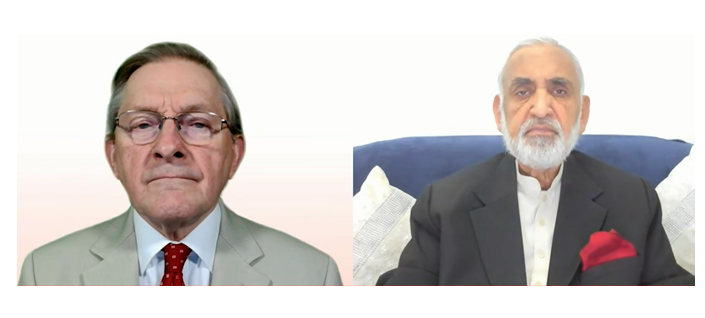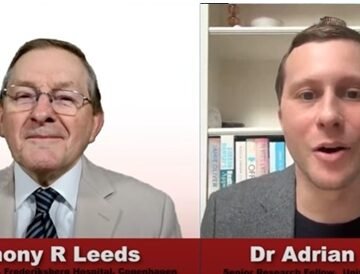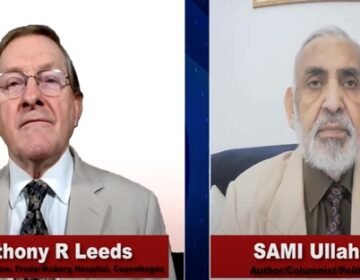Another useful and important new series on the special topics for our global and especially South Asian audience….
Dr Leeds in conversation with Sami Ullah Malik
Introducing series four of ‘Health chat with Dr Anthony Leeds’
In this episode Sami Malik interviews Dr Anthony Leeds about the forthcoming series of ‘Health Chats’ and the importance of the topics for our global audience, but particularly for the peoples of south Asia.
Sami Malik began by asking why a fourth series was needed and Dr Leeds said that the interviews were primarily public health education. The information and guidance given needed to be repeated over and over again for the benefit of new viewers but also for existing loyal viewers who had watched previous programmes. To be effective health messages needed to be repeated, but he also added that there would be new information. There is new information about diabetes remission that will be given by Professor Mike Lean in the second episode. Dr Leeds also pointed out that the numbers of people with type 2 diabetes in Pakistan was very high (about 33 million in 2021) and this was predicted to rise to about 62 million by 2045. This would cause great suffering to those affected and place a great strain on health care services.
Asked why the series was so popular, Dr Leeds said this was due to the effectiveness of the information messages sent out by Sami Malik’s team. He acknowledged that this was so important because to be effective public health messages had to be watched and heard by many people to be effective. Dr Leeds expressed thanks to the 2 million loyal viewers and listeners who regularly watched the episodes in series three. The chief location of viewers was south Asia, followed by East Asia and then South-East Asia. There were also large audiences in North America, the Middle east and Europe. However, he also thought that since diabetes was so very common in South Asia almost everyone was affected by it in some way. If not personally affected they had family members, parents, aunts and uncles who were affected. Thus almost everyone had an interest in this.
Sami Malik asked what were the main messages in the previous series. Dr Leeds responded that apart from the fact that diabetes type 2 could be put into remission by losing 10-15% body weight there were other conditions such as sleep disorders and high blood pressure that responded positively to weight loss. He noted that he has worked with colleagues in Copenhagen in Denmark on weight loss in people with osteoarthritis where it was shown that losing 10-12kg in elderly people with knee osteoarthritis could reduce pain and improve mobility thus improving quality of life.
The forthcoming series will revisit diabetes remission but begin to address eye health. The third and fourth episodes will feature interviews with Professor John Nolan of South-East Technology University in Waterford, Ireland, who has undertaken groundbreaking work on nutrition and eye health. Prof Nolan has also linked the benefits of good nutrition for the eye to benefits for brain function as well.
When asked about his advice for people in South Asia, Dr Leeds said that he recommended that the countries of South Asia should ideally have diabetes remission programmes just as the United Kingdom now has. Diabetes results in a progression towards complications if untreated but if caught early it was possible to put the condition into remission. The people of South Asia, particularly those in Pakistan ought to have access to weight loss and diabetes remission programmes. Even those with type 2 diabetes who are only a little overweight can benefit from some weight loss.



![Long term benefits of obesity surgery [part 2] Mr Pratik Sufi](https://bittertruth.uk/wp-content/uploads/2025/06/sufi-360x280.jpg)


















